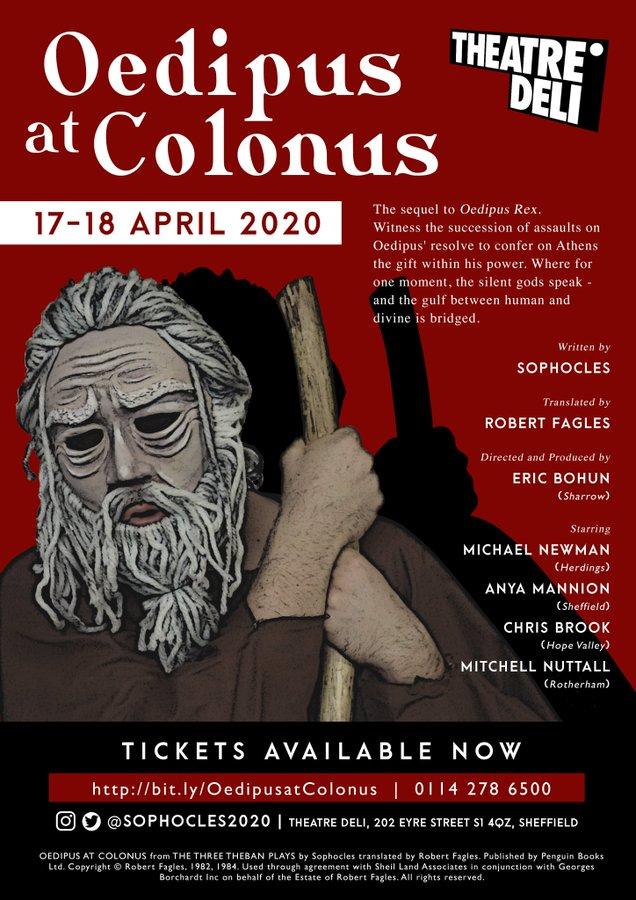Oedipus at Colonus: An audio production
15 May 2020 | I. C. Hine
When Heinz Cassirer set to translating Sophocles' final play, he had no cause to know that another Greek scholar was working on a new English translation. Robert Fagles' Oedipus at Colonus was first published in 1979 and continues to appear along with Fagles' translation of Antigone and Oedipus the King in the Penguin Classics edition, Sophocles: The Three Theban Plays.
This April, Fagles' version of Sophocles' Oedipus at Colonus was due to be staged at Theatre Deli, Sheffield. Adverts for the auditions appeared in local coffee shops in early autumn. In the weeks that followed, director Eric Bohun chronicled developments on Twitter (@Sophocles2020), posting pictures of masks, scenery and costumes. The production was just entering dress rehearsals when COVID-19 forced its cancellation.
Amidst the many disappointments and difficulties of lockdown, Eric's cast responded generously to a request to reconvene virtually and record a dramatic reading of Cassirer's text. This effort is being supported by theatre production staff from the University's School of English, who are lending time and expertise to make sure the audio quality is up to scratch and edit the different tracks together. (Each actor is recording lines at home, to be compiled in post-production.)
About this production
Some re-casting was inevitable: Fagles split Sophocles' Chorus into defined voices (Leader and respondents), and under Eric's direction these voices were further subdivided. Cassirer holds fast to the received text, with Chorus speeches undivided. As an audio-only version, it is important that the different parts sound distinct. For these reasons, cast members who were due to perform multiple roles (differentiated visually by masks) are now taking distinct parts, with members of Eric's Chorus allocated to others.
The goal is to release the full audio in late June. This will be followed by a live online discussion taking into account the different translations (Cassirer and Fagles) and exploring how Sophocles' play speaks to us in 2020.
Further details will be announced here in due course.

